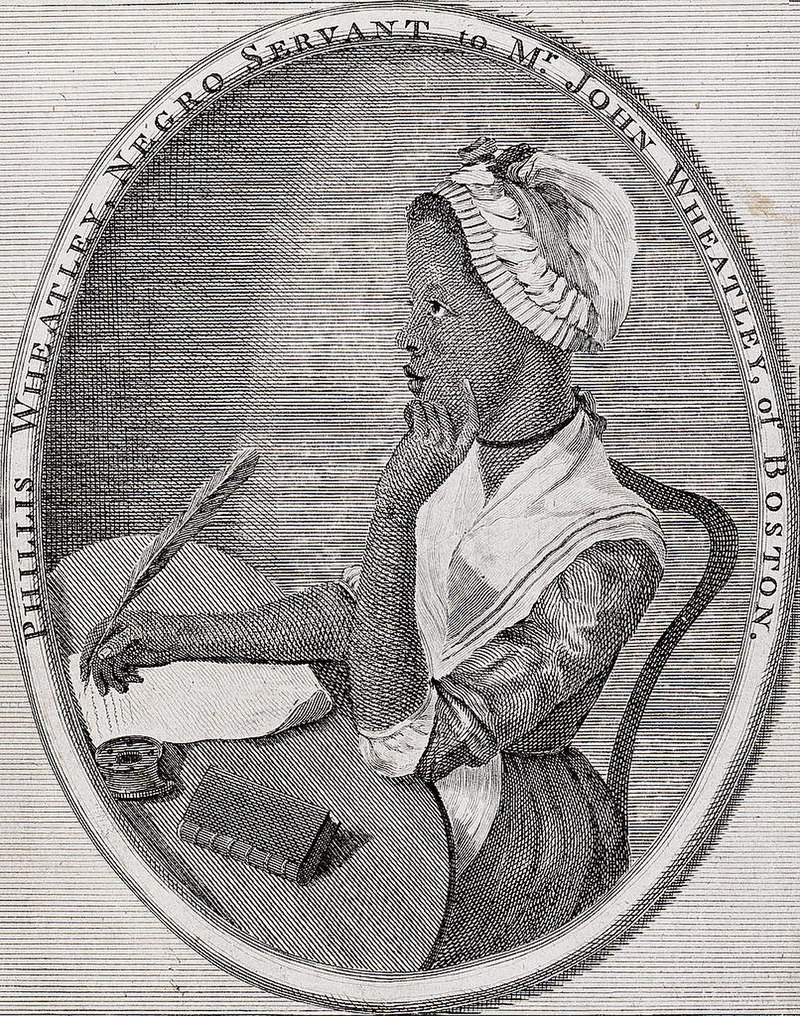Phillis Wheatley was the first African-American author to publish a book of poetry. Her work was celebrated by prominent citizens of both London and the colonies, including George Washington, John Hancock, and Benjamin Rush.
Early Life
Phillis Wheatley is believed to have been born in 1753 in West Africa. She was sold into slavery as a child and arrived in Boston on July 11, 1761. She bought by the wealthy Boston merchant and tailor John Wheatley, who named her after the slave ship that brought her to the colonies. The Wheatley’s taught Phillis learned to read and write. After recognizing her potential, they continued her formal education, which was rare for both a slave and a woman.
Poetry
At the age of 14, Phillis wrote her first poem, “To the University of Cambridge [Harvard], in New England.” Many of her poems were written in the style of odes and tributes. Her tribute to George Whitefield in 1770, entitled An Elegiac Poem, on the Death of that Celebrated Divine, and Eminent Servant of Jesus Christ, the Reverend and Learned George Whitefield, brought her significant acclaim in both the colonies and Britain.
While Phillis’s poetry was well-received, publishers in Boston refused to publish a book of her work and even questioned whether she wrote it herself. In 1772, Wheatley defended her work before a panel of prominent Boston citizens, including John Erving, Reverend Charles Chauncey, John Hancock, and Gov. Thomas Hutchinson. Their attestation would later be included along with her poems.
The Wheatley’s brought Phillis to London, where she met with dignitaries and sought a publisher for her book. In 1773, Phillis Wheatley’s Poems on Various Subjects, Religious and Moral became the first book of poetry published by an enslaved Black woman.
Phillis Wheatley’s poetry addressed religion, celebrated America and spoke out against slavery. She wrote:“Remember, Christians, Negroes, black as Cain, /May be refin’d and join th’ angelic train.” Phillis also used her talent to advocate for America’s independence. Her poem,“To His Excellency, General Washington,” reached General Washington. In a letter back to Phillis, Washington praised her talent and stated he would “be happy to see a person so favored by the Muses.”
Later Life
Following the publication of her book, the Wheatley’s emancipated Phillis. Susanna Wheatley died in the spring of 1774, and John died four years later. Phillis married John Peters, a free black man, in 1778. Peters was a poor grocer, and the couple lived in poverty. Although Wheatley issued a proposal for a second volume of poems, she was unable to secure enough patrons to publish. After Peters ended up in debtors’ prison in 1784, Phillis worked as a scullery maid at a boarding house. She died on December 5, 1784, at the age of 31.






